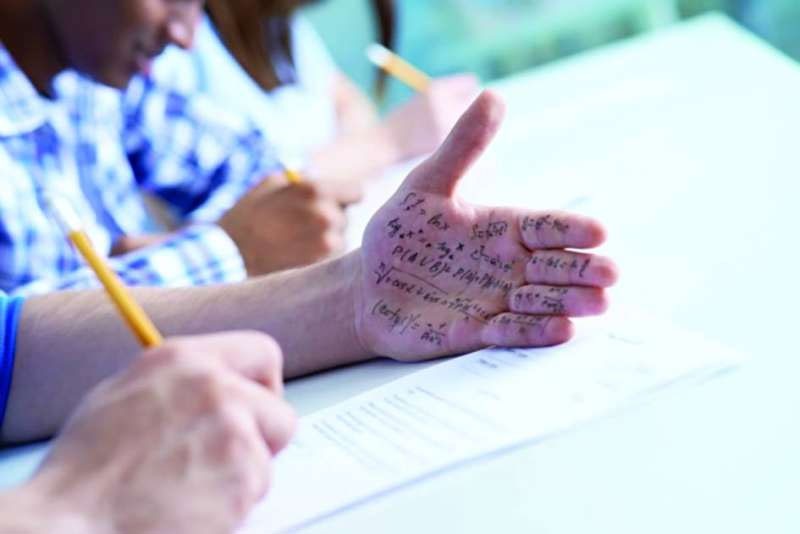06/05/2023
06/05/2023
KUWAIT CITY, May 6: An unprecedented educational study with the participation of 1,780 teachers and 1,725 students from 83 secondary schools resulted in recommendations on combating cheating in secondary school exams; including traditional means such as harsh penalties and strict procedures, reports Al-Rai daily.

For the first time in the history of the Education Ministry, a study focused on the depth of the cheating problem and touched on “the importance of linking the curricula with the students’ needs, desires and tendencies while canceling unnecessary data to focus on basic information.”
The daily obtained a copy of the study conducted by the Research Department in the Curriculum Sector of the ministry. It determined the extent of cheating and its causes from the point of view of students and teachers, in addition to the methods of comprehensive confrontation.
The recommendations, which will be applied in the final exams of the current academic year, include harsh penalties for cheating students, use of jamming devices to block headphones, and not allowing any document containing questions to be taken outside the exam hall until at least an hour after the start of the exam.
The study revealed that 30.60 percent of the sample of students cheated in a subject at the secondary level; while 28.90 percent said they will try to cheat if there is an opportunity to do so, which means they have the desire to cheat. The most common methods of cheating in exams from the point of view of teachers are in this order: use of small headphones, mobile phones, hand signals and others; use of paper clips; and use of signs as agreed with classmates.
From the students’ point of view, the reasons for cheating are related to curricula and school administration, followed by student-specific reasons, then teacher-specific reasons, and finally family- and community-related reasons.
According to the study, the most important ways to confront cheating in exams from the teachers’ point of view are in this order: “making the student aware of the procedures he must go through in the event of cheating, preventing students from carrying telephones and electronic devices inside the examination hall, and the Ministry of Information must raise awareness on the danger of cheating with the help of prominent personalities who have societal value for young people and are appropriate to the ages of high school students.”
The study highlighted the negative effects of cheating in exams as follows: “killing the spirit of competition among students, underestimating the importance of tests in evaluating academic achievement, giving unreal results and a false image of the educational process that produces graduates who lack competence and discipline at work. This will extend beyond the study, because an employee who is accustomed to cheating may misappropriate public money, engage in illegal activities, forge official documents and take bribes.”


